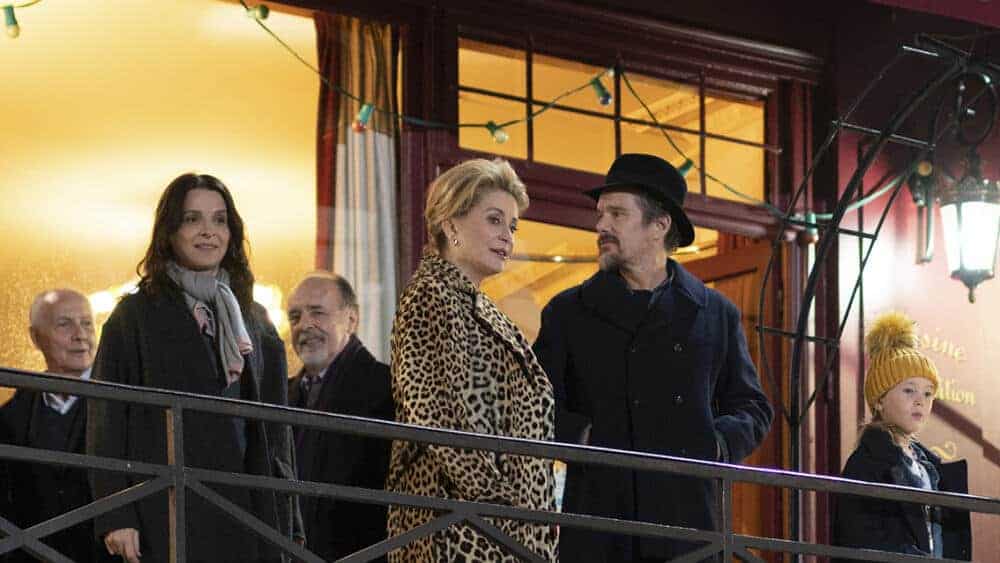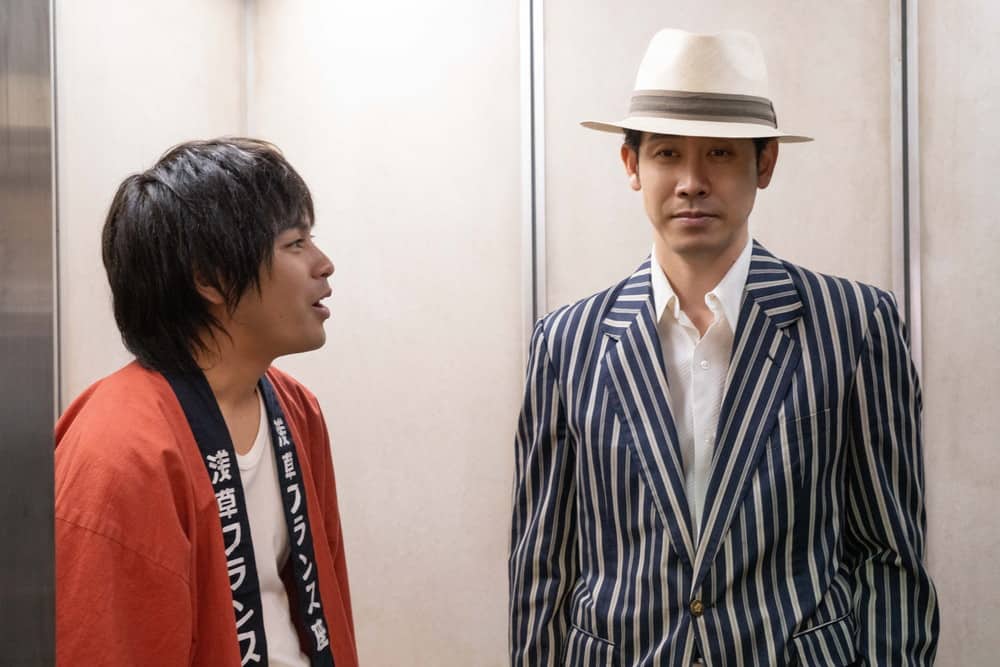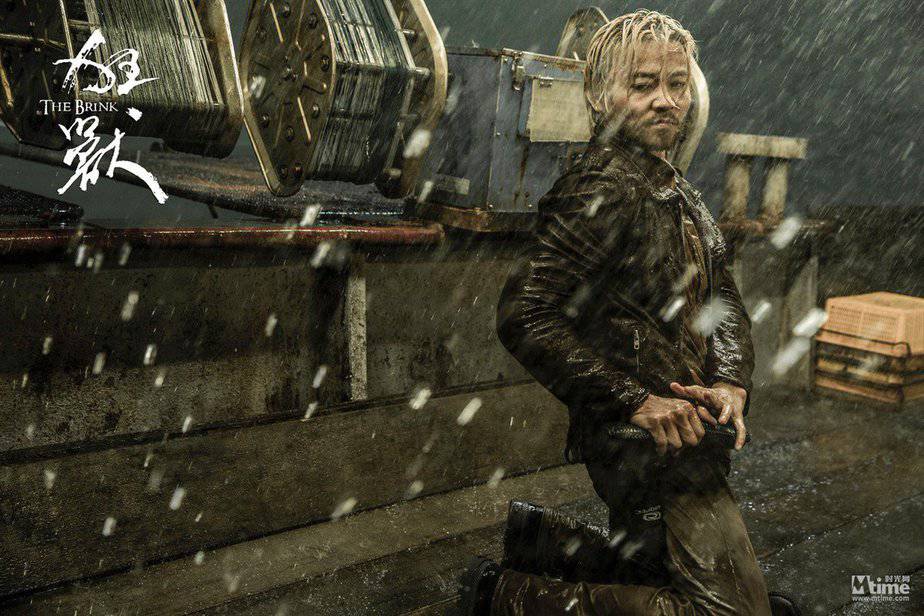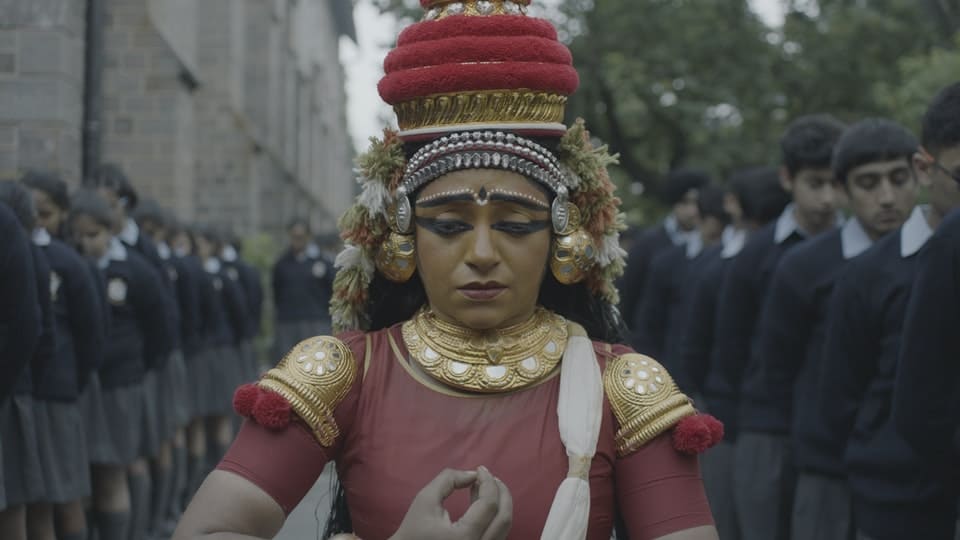Director Gu Xiaogang undertakes a rather ambitious project for his feature debut, which takes its title from a 14th century Chinese scroll painting by Huang Gongwang, and focuses on presenting his constantly changing home town of Fuyang. Apart from the 150 minutes of its duration, the movie was shot over two years, in order for him to show the town throughout the four seasons, with Gu using personal loans to shoot until Factory Gate joined in the production. Furthermore, he decided to include solely non-professionals for the cast, while the most astonishing element, considering the style and the result of his efforts, is that he has never attended a film school.
Dwelling in the Fuchun Mountains is screening at Helsinki Cine Aasia

The story depicts a year in the life of the Yu family, beginning with the celebration of the birthday of the aging matriarch, attended by her four sons and their families. The eldest, Youfu, who runs a restaurant with his wife Fengjuan, is the definite “leader” of the family, a title, however, that mostly means shouldering almost every burden created by the rest. Youhong is a struggling fisherman that eventually gets a break of luck that changes his life. Youjin, who tries to raise his down-syndrome son on his own, is a no-good minor swindler, who eventually leaves all his debts to his brother and disappears, creating a score of problems. The younger brother is a simpleton who Youfu is trying to arrange a marriage for, in order to avoid sheltering his burden also, as is the case with his senile mother. As Youfu's daughter and Youhong's son are of marriageable age, a number of other issues arise. The former agrees to marry the suggested bride, but the same does not apply to the former, Guxi, who wants to marry a teacher colleague, Jiang Yi, a son of a river ferry captain whose “rank” her mother does not approve. The fight is inevitable, while at the same time, Youfu's family has to face increasing debts.
One of the most common faults of the art-house cinema is that the focus on aesthetics is so significant that, occasionally, deem any kind of story almost non-existent. This, however, is not the case with “Dwelling in the Fuchun Mountains”, which features a rather rich script by Gu Xiaogang, which actually fills almost the whole of its 150 minutes. Furthermore, the fact that the story manages to focus on almost all members of the family, allows the filmmaker to make a number of social and political comments regarding Chinese society. The very deep bonds of the Chinese families is the most evident one along with the generational gap that is created from the “obsession” with tradition of the previous generation, and the modern thinking of the new one, who seems to have adapted to the continuous, quite impactful changes the country have been experiencing the last decades. The arc of the second brother seems to state that there are many opportunities for those who adapt to these changes, with the exact opposite stated by the older brother's story.

The complete absence of state welfare is another central comment, not as obvious but actually surrounding the whole narrative, as we witness the four brothers having to care for their elderly mother, Youjin for his handicapped son and Youfu dealing with his brother's debtors without any kind of government help. The same applies to the housing issues, which actually form one of the main factors for any kind of life decision, as is the case with the people the parents want their children to marry. In that fashion, the state in the film is completely absent, with the only time it appears being to punish people who seem to have no alternative but to turn to illegal endeavors to make a living.
However, and despite the aforementioned comments, the film does not become melodramatic or even pessimistic at any point, particularly because it shows that the families who stay together can overcome any kind of problems.
Apart from the rich context and engaging story, the movie also excels technically. Yu Ninghui's cinematography is impressive and will definitely bring comparisons with the works of Hou Hsiao Hsen and Edward Yang. The many travelling, lengthy, long shots that highlight the area near the river bank and particularly a big park in the area are a true wonder to look at, while they also allow Gu Xiaogang to present the film like an unfolding Chinese scroll painting, thus connecting it with the title. The wide tracking shots dominate the film, with DP Yu Ninghui's camera rarely closing up on the characters, in a tactic that makes the audience feel as if they are picking at the action, while also allows Gu Xiaogang to highlight the area in all its glory. In that fashion, one could easily say that the movie also functions as a tour guide of the area. At times, however, this approach becomes too detached, but in general, works quite well for the narrative.
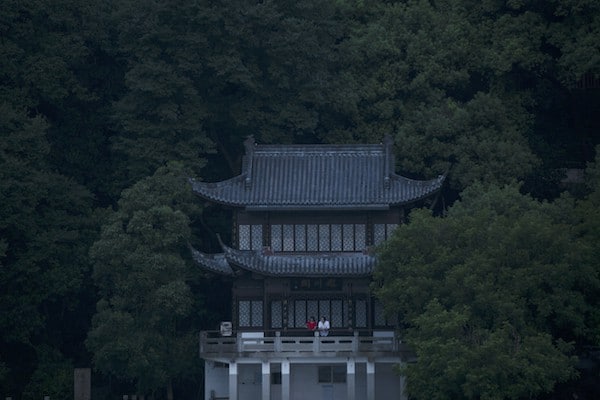
The only fault in the combination of story and visuals is that after some point, the movie gets into a repetitive motif, of showing a sequence of the area in card-postal like fashion followed by a sequence with the characters. The succession is not exactly bad, since the work done by Liu Xinzhu in the editing is quite good, but becomes a bit too obvious and somewhat tiring after a fashion, to the point that it becomes obvious that a bit of trimming would have benefited the film. The cut available however, is not the final one, so there may be some more changes in that regard.
The actors, and particularly Qian Youfa as Youfu, Wang Fengjuan as Fengjuan and Peng Luqi as Guxi do not appear as non-professionals at all, with their performance being excellent, in perfect resonance with the overall realistic premises of the movie, a fact that must be largely attributed to Gu's direction, who also does not seem like a first timer at all.
“Dwelling in the Fuchun Mountains” is an impressive debut that truly deserves all the awards that has already received (Tokyo Filmex, First, Hamburg etc) by a director who is bound to keep us busy in the next years, particularly since the film is planned as the first part of a trilogy.





